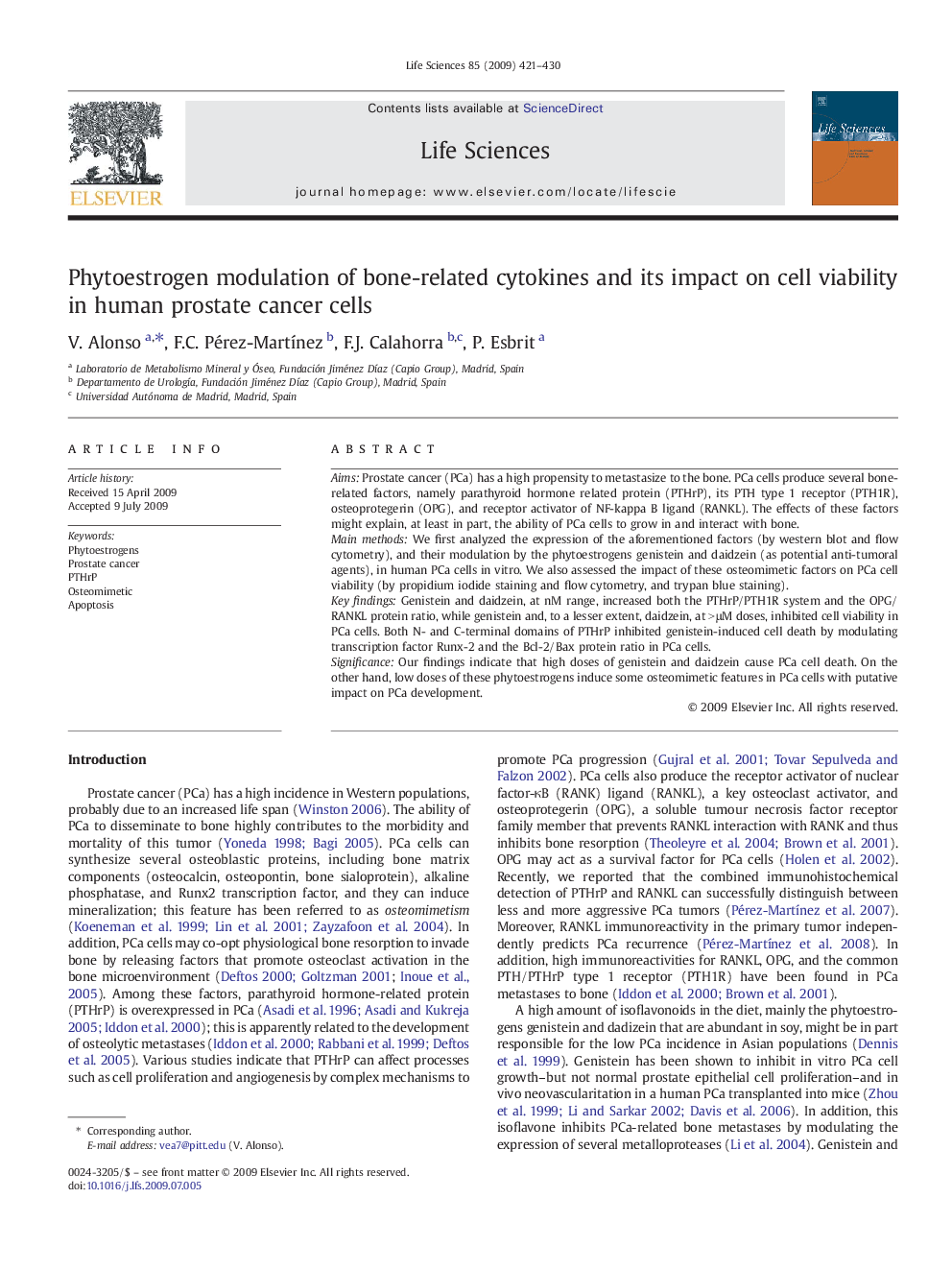| Article ID | Journal | Published Year | Pages | File Type |
|---|---|---|---|---|
| 2552153 | Life Sciences | 2009 | 10 Pages |
AimsProstate cancer (PCa) has a high propensity to metastasize to the bone. PCa cells produce several bone-related factors, namely parathyroid hormone related protein (PTHrP), its PTH type 1 receptor (PTH1R), osteoprotegerin (OPG), and receptor activator of NF-kappa B ligand (RANKL). The effects of these factors might explain, at least in part, the ability of PCa cells to grow in and interact with bone.Main methodsWe first analyzed the expression of the aforementioned factors (by western blot and flow cytometry), and their modulation by the phytoestrogens genistein and daidzein (as potential anti-tumoral agents), in human PCa cells in vitro. We also assessed the impact of these osteomimetic factors on PCa cell viability (by propidium iodide staining and flow cytometry, and trypan blue staining).Key findingsGenistein and daidzein, at nM range, increased both the PTHrP/PTH1R system and the OPG/RANKL protein ratio, while genistein and, to a lesser extent, daidzein, at > μM doses, inhibited cell viability in PCa cells. Both N- and C-terminal domains of PTHrP inhibited genistein-induced cell death by modulating transcription factor Runx-2 and the Bcl-2/Bax protein ratio in PCa cells.SignificanceOur findings indicate that high doses of genistein and daidzein cause PCa cell death. On the other hand, low doses of these phytoestrogens induce some osteomimetic features in PCa cells with putative impact on PCa development.
